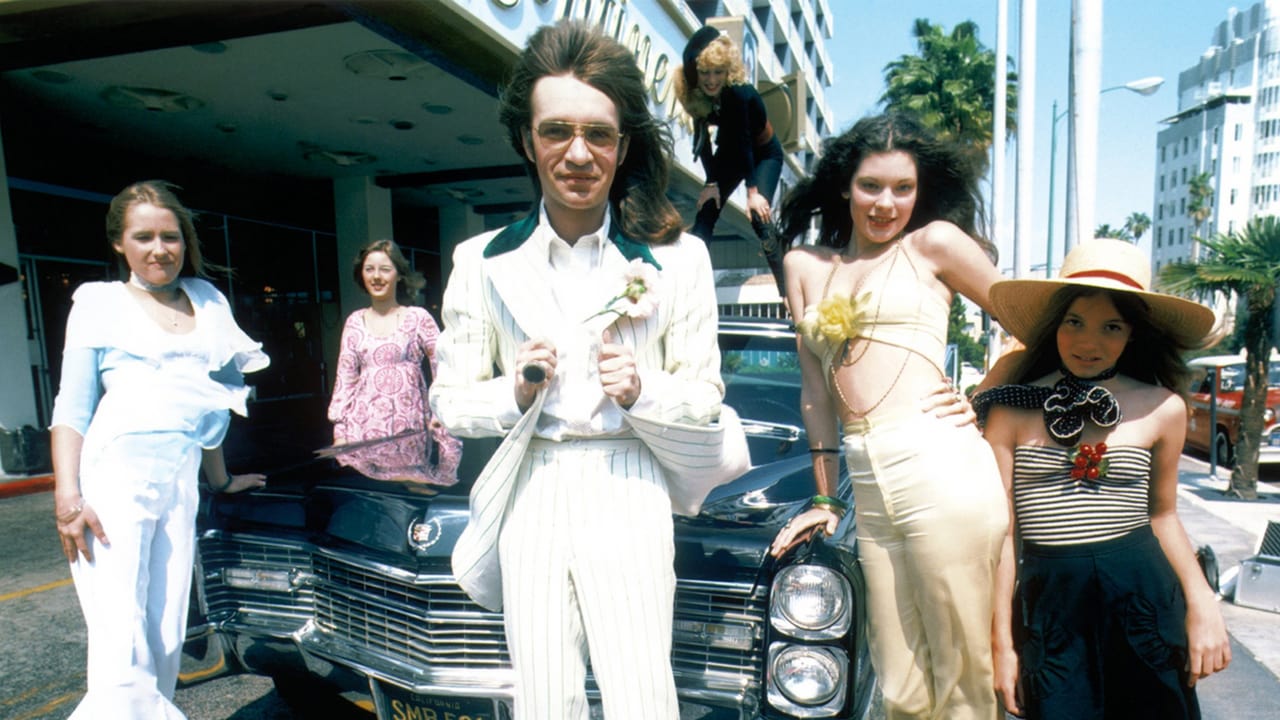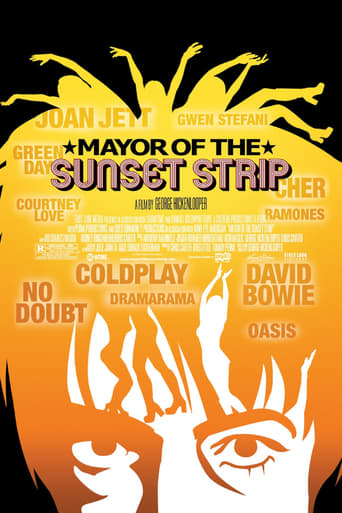


If you enjoy spending time in the company of has-beens, wanna-be's, and self-absorbed C-list "celebrities," you're going to love this cheesily-produced, amateurishly directed, sloppily edited mess of a documentary focused on the delusions of a pitiable LA disc jockey, who would have profited more from a stay in an institution than from being profiled by this crew of talentless exploiters. If you can make it past the first five minutes (a feat that should be rewarded with a big-money prize), you're in for a real treat — about 90 more minutes of the same meandering, pointless drivel. What you see is what you get. There is no story arc, nothing to be learned, no surprises — just endless footage of this sad little man in a silly haircut and the monstrous fame- driven ciphers he has surrounded himself with. Two stars only for confirming that LA, Hollywood, and the celebrity racket in general are the most pathetic life-sucking ratholes yet devised by humankind. To paraphrase the late, great Sonny Liston, I'd rather be a lamppost in Baltimore than the Mayor of the Sunset Strip.
... View MoreAs a co-star in this movie I am duty-bound to make a correction, namely, that RODNEY was NOT dropped off at Connie Stevens' house by his mother. This was a fabrication introduced by the director, and voiced by Kim Fowley.I agree with several people: the movie should be re-cut (it's possible, because the raw footage is still in storage) and the crap (the too- "dark" stuff) removed...and made much longer. So much was never seen...and this was supposed to be a pro-RODNEY movie (and not an anti-Kim Fowley picture). It could have been a GREAT documentary instead of just a GOOD one...Trivia: Originally, this movie was supposed to have been offered via Paramount Pictures. What would have happened IF it had, one wonders?
... View MoreI had never heard of Rodney Bingenheimer prior to catching the doc on Showtime, so it was somewhat shocking to see how involved he was in the musical lives of many bands that I like. He, as has been said elsewhere, is like a musical Zelig; in one funny sequence, he is seen in the videos of the Mamas & Papas, Blondie, The Ramones (I think) and many more--one of the those nameless people in the background clapping their hands, singing along, etc.His acceptance by the famous as a male groupie is due to his nearly blank canvas of a personality--he seems to have no real emotional depth. His wallpaper-like persona is similar to Andy Warhol's except that Warhol's was very likely an act--there was a lot going on under that wig. That can't be said for Rodney. He has nothing much to say about anything other than "wow" or "really?" or "that's great." What he does have is good intentions and a lack of an exploitation gene so that celebrities feel safe around him.Interestingly, he has a Doppelganger in producer/artist Kim Fowley with whom he appears to be very close. Fowley is everything Bingenheimer is not: crass, manipulative, exploitative, even violent. It is an interesting psychological study. A second shadow figure is presented in an aspiring recording artist/sad sack that Bingenheimer befriends: these two friends carry some of the things that Bingenheimer cannot allow for himself.The film goes from a story of a guy gliding happily through life to a kind of sad story. When asked how he'd like the film to end, an obvious metaphor for his own life, Bingenheimer tellingly responds "I just want everyone to be happy, to enjoy the film." He cannot aspire to his own happiness, cannot make any real claims life. Ultimately, the famous who have made real lives for themselves, move on. Rodney, like Melvilles's Bartlby, cannot.
... View MoreFor those of us old enough to remember the music scene of the late 60's, 70's and beyond (even the popularity of the Monkees!) this film is like going to a wonderful, emotionally affecting family reunion. The stills and video footage are so wonderful, it makes you want to see the film more than once, or own a copy. What is most striking about the film, though, is Rodney himself. I'm sure that there are many people in the world he inhabits who are conceited or arrogant or dismissive of ordinary people. But Rodney's pureness of heart shines through in this film. You can clearly see how unpretentious, genuine, and generous of spirit he is, and how he relates to people like Cher or Nancy Sinatra as real people, not because they are famous. Although the filmmaker seems to focus on areas of Rodney's life that remain unfulfilled, and this brings more than a little pathos to the overall tone of the film, the film really makes you care and want to know more about this unique man, who truly has a beautiful spirit.
... View More